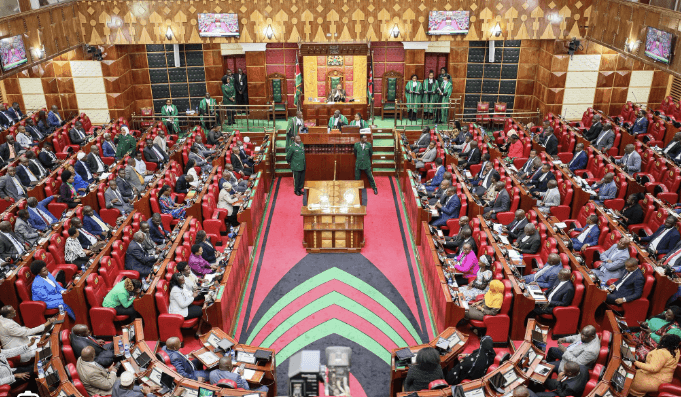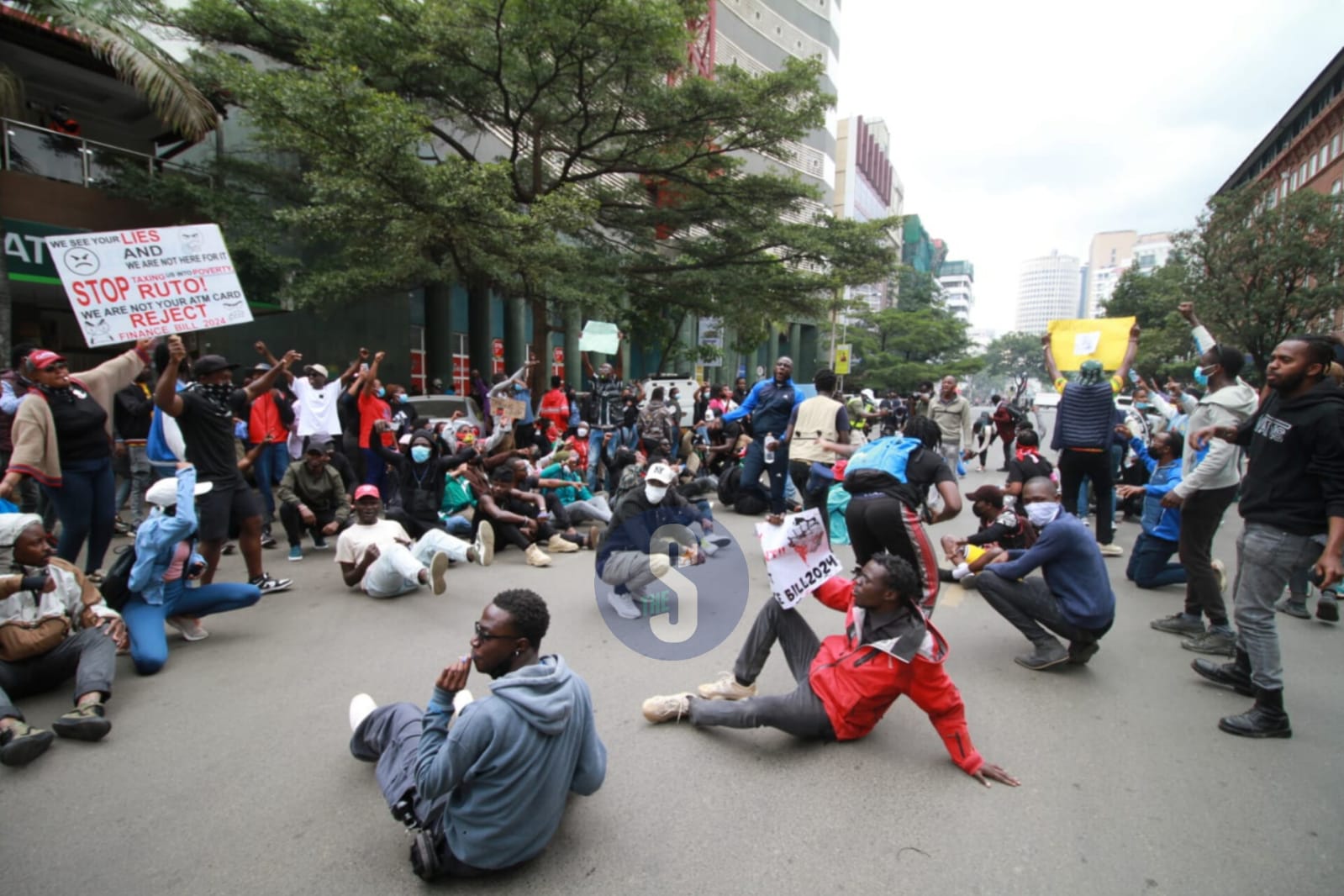

The Finance Bill, 2024 elicited the most anger among Kenyans, with thousands taking to the streets to protest countrywide.
The protests started on June 18 after the bill was made public for the first time.
The protests began in Nairobi but have spread to other parts of Kenya, including Mombasa and Eldoret, President William Ruto’s backyard.
The Bill was part of Kenya's 2024/25 budget and proposed tax hikes on various goods and services as a means to raise more government revenues.
Provisions in the bill included imposing 16 per cent VAT on
bread as well as tax hikes on mobile money transfers and a new annual 2.5 per
cent tax on cars.
The Bill also proposed an eco-tax on products that are considered harmful to the environment - such as packaging, plastics and tyres - and would increase the cost of items including nappies, sanitary towels, computers and mobile phones.
Other taxes included 16 per cent VAT on some financial services and foreign exchange transactions.
On June 26, 2024, President William Ruto declined to assent to the Finance Bill 2024.
In referring to the Bill for reconsideration by the National Assembly, the President took note of the widespread expression of dissatisfaction by members of the public on the contents of the Bill.
Then Interior Cabinet Secretary Kithure Kindiki, now the Deputy President, insisted that 42 people died as a result of Gen Z-led protests.
He told MPs that arrests during the protests totalled 1,208 noting that there were some 132 cases of missing persons reported from the demos, across the country.
At the close of public participation on Friday, 240,000 Kenyans had sent their memorandum with tens of others making verbal submissions during the public participation forum at KICC in Nairobi.
The memorandum crashed the Senate email system as Kenyans expressed their outrage at the bill.
“The Senate received over 200,000 submissions, reaching the
maximum capacity of the allocated email addresses,” the Senate said.
The Senate Justice, Legal Affairs and Human Rights Committee
conducted the public hearing where hundreds of Kenyans turned up to give their
views on the Bill.
Nandi senator Samson Cherargei, who sponsored the Bill, argued that while Kenya’s progress has always been affected by perpetual politicking, the performance of a leader couldn’t be pegged on their period in office.
Cherargei said he received more than 10,000 messages and 100,000 phone calls asking him to drop the Bill.
The Standing Committee on Justice, Legal Affairs and Human Rights asked the Senate not to pass the Bill.
“This was particularly on the provisions relating to the proposed extension of terms of the President, Members of Parliament, and Governors and Members of County assemblies from five to seven years, as well as the proposed introduction of the position of Prime Minister,” the report said.
The committee chaired by Hillary Wakili (Bomet) observed that there should be a sieving mechanism for vetting and approving Bills to amend the Constitution before they are introduced in either House of Parliament and subjected to public participation as in the present case.
On June 30, the government withdrew a Bill that would have seen owners of freehold land within or close to urban areas pay an annual land levy in addition to land rates.
National Assembly Majority Leader Kimani Ichung'wah wrote to speaker Moses Wetang'ula asking for the Land Laws(Amendment) Bill, 2023 to be withdrawn.
Ichung'wah informed the speaker that the withdrawal was informed by constitutional and legal issues that arose from the Bill.
Ichung'wah said that the executive had advised on the need for the ensuing issues to be addressed and resolved before further consideration.
"'Having consulted with the relevant stakeholders, this is to confirm that the majority party has withdrawn the bill,'' read Ichung'wah's letter in part.
The proposed law sparked protests and was criticised by even the National Land Commission (NLC) as amounting to double taxation.
In September, Nominated MP Sabina Chege proposed a law that will establish a governing authority that will issue licenses to horticultural crop dealers, in a new attempt to legislate more agricultural products.
The 2024 Horticultural Crops Authority Bill mandates county governments to keep a list of all marketing agents, nursery dealers, planting material propagators, and mother block operators in the domestic market.
The Bill has proposed the establishment of a Horticultural Crops Authority which shall be mandated in issuing the licences.
Kenyans and agriculture experts expressed concern over several proposed bills currently before the National Assembly and the Senate.
They argue public participation is crucial to ensure the views of all stakeholders are considered.
Among the controversial bills are the Livestock Bill, 2024; the Price Control (Essential Goods) Amendment Bill, 2024 and the Mung Bean Bill, 2022.
Farmers expressed concerns that the bills might be a way to impose additional taxes.
Specifically, the Livestock Bill and the Mung Bean Bill propose the registration of farmers, a measure that has faced resistance from many small-scale farmers.
In July, the National Assembly withdrew the Livestock Bill 2024, “to enable the State Department of Livestock to conduct comprehensive public participation on the Bill".









